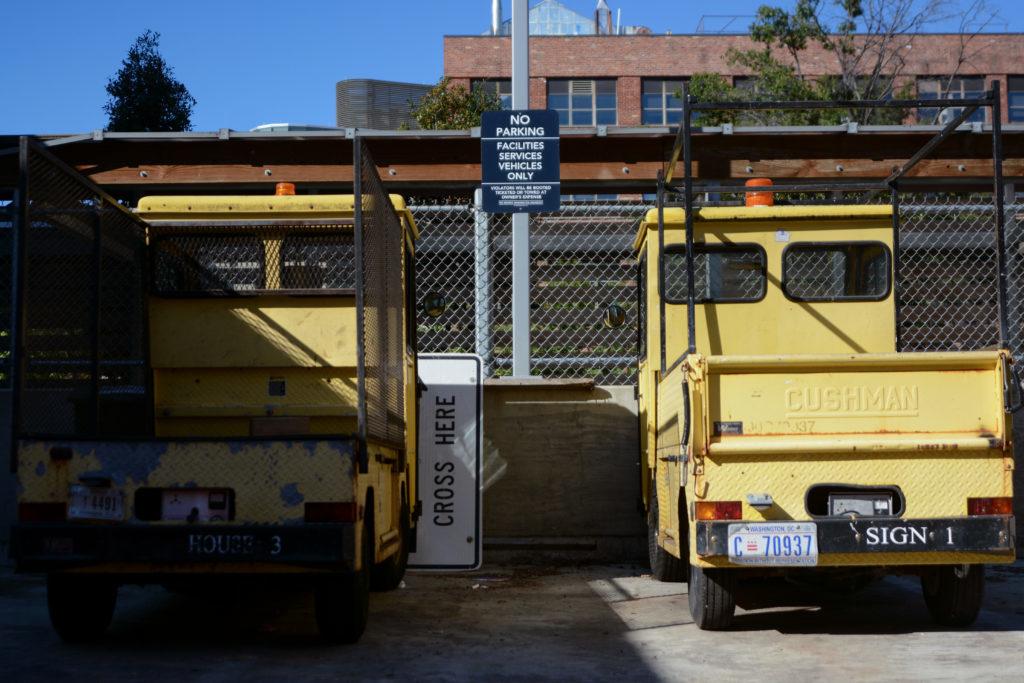Parth Tandon, a sophomore living in District House, said he submitted four FixIt requests throughout the last academic year for a missing bedroom door in his six-person room in Thurston Hall.
“Every time someone came and said, ‘yeah, we need to order a door, and it’s being ordered,’ and the door never arrived,” he said.
That was until this summer when Tandon received an email from FixIt saying the issue had been resolved – “when I was three months out of Thurston.”
Tandon is one of more than 40 students who said in interviews that they’ve experienced issues with the maintenance service ranging from extended delays for service to spotty updates about the status of their requests. While the service’s internal status reports show that crews have been responding to requests faster than in the past, many students said four years into an effort to increase communication with students, their interactions with the service left them frustrated and confused.
Students said the delays cause major annoyances and, in some cases, unsafe conditions in their rooms – like mold or doors that don’t close – and that tickets are often ignored, revisited weeks later or in some cases marked as fixed when the problem is not solved. Twelve students described 10 separate incidents in which their requests were marked incorrectly resolved.
Nearly four in five of those interviewed said they had encountered communications problems – like spotty or no updates with the service while waiting for repairs – and 17 of the 41 students interviewed said they had experienced delays of more than one week. Emails between FixIt and the students mentioned were obtained by The Hatchet to confirm the claims.
Alicia Knight, the senior associate vice president of operations, said there are many reasons why a FixIt request can be marked as completed when it is not, like if there is insufficient information on the initial request, if multiple requests are submitted from the same room or if students are dissatisfied with the work performed. She said more complex issues may require multiple tickets because different offices will need to work on the issue.
“While there have not been more concerns this year with unresolved requests marked as completed, the Division of Operations knows this can be frustrating and works to minimize this occurrence in the hundreds of requests completed on a daily basis,” Knight said in an email.
She said the service responds to “tens of thousands of requests” each year and the Division of Operations stays in contact with the Residence Hall Association and Student Association to hear student concerns about the service. Knight said the department also encourages students to stay in contact with residence hall property managers on more complicated issues.
Maddie Soule, a sophomore living in Strong Hall, said she noticed her shower was leaking the first week of the academic year and filed a FixIt request Sept. 5. Employees in facilities services told her she could come pick up a shower curtain to resolve the issue – but Soule’s shower has a door, not a curtain.
“I was like, ‘you can look, but there’s nothing to put it on,’” Soule said.
The next day, another maintenance worker told her that she just had to “slam the door” attached to her shower to keep water from leaking out and she said he told her that the problem was fixed.
Sophomore Logan Brown, one of Soule’s suitemates, said it never was.
“Right now we’re just wiping up all the water, which is really annoying once it pools everywhere,” she said. “It’s kind of gotten from bad to worse – in my closet, my shoes have gotten wet. It’s just annoying to have to keep up with.”
The Division of Operations has told students in emails, which were obtained by The Hatchet, that about 87 percent of requests are resolved within two days of filing. That rate has climbed dramatically since 2013, when work crews completed 76 percent of requests within five days or less from the time of submission.
FixIt aims to complete 85 percent of requests within five days, according to its website. In August, FixIt hit its completion standard nearly 84 percent of the time, according to the website.
FixIt began publicly releasing its response rates in October 2013 after student complaints of delayed or shoddy repair work pushed the service to commit to speedy responses.
At the time, the operation rolled out upgrades to help students track the progress of their requests, like mobile or email notifications.
But students this year still said they were dissatisfied with how the service responded to their requests and that communication with students was not adequate.
Salvatore Capriglione, a senior living in South Hall, said his roommate filed two FixIt requests this semester to address a leaking air conditioner, which would sometimes flood his room, but the service would only provide him with temporary fixes.
“They set up a fan to dry it, or they would just reset it or turn it on and off,” he said. “It was not helping what was wrong. They were just setting it off to a later date.”
But after each of these fixes, the problem was marked as resolved, even though it wasn’t, Capriglione said.
“Since I can’t give them feedback and they don’t tell me what they did or didn’t do, I don’t really know that the issues won’t happen again,” he said. “It’s a little frustrating.”
Cayla Harris and Charlie Oberst contributed reporting.



